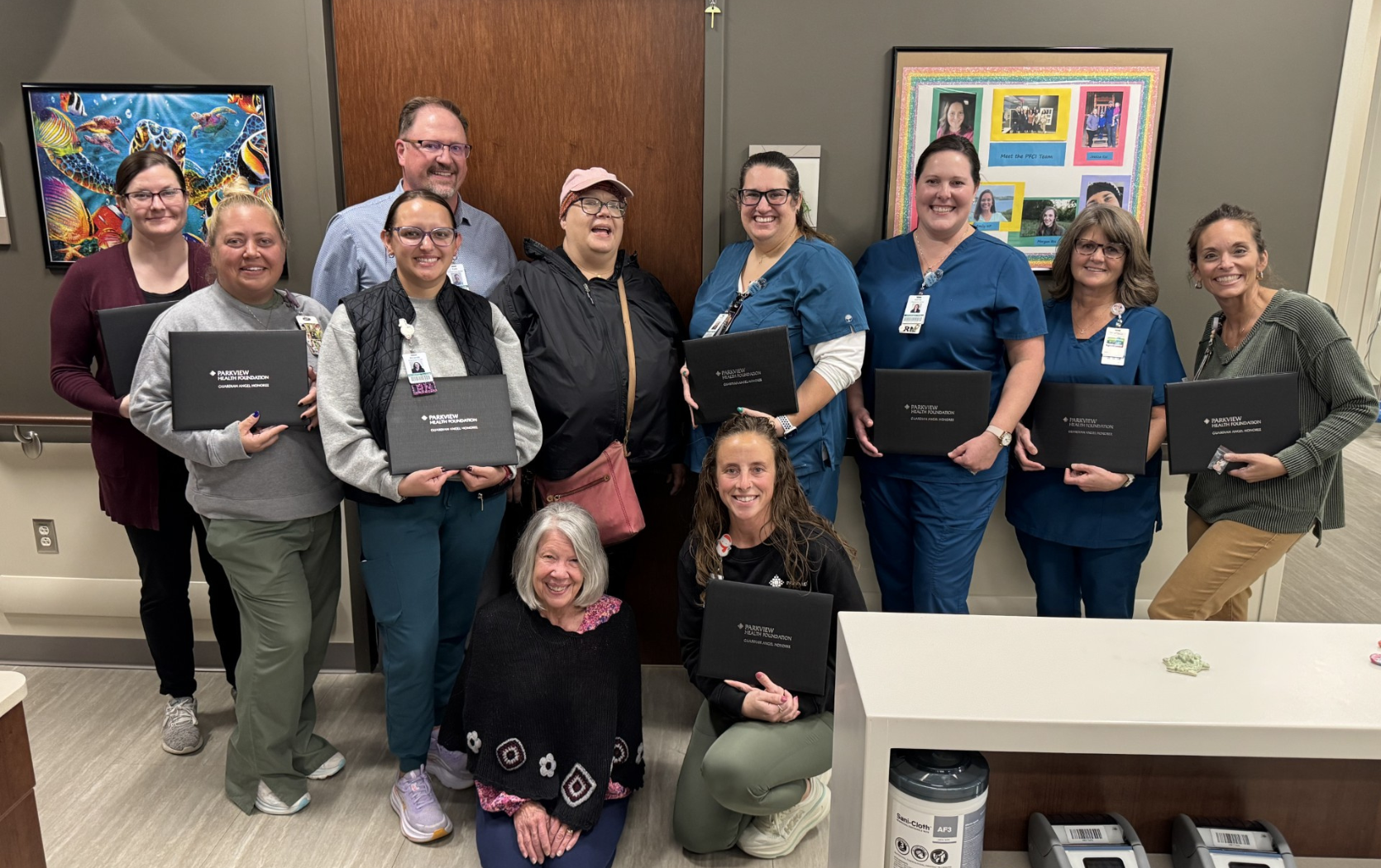
This post was written by Abdo M. Saad, MD, Parkview Gastroenterology.
When you’re having stomach problems, your initial reaction may be to turn to something in your medicine cabinet to curb those symptoms. Then perhaps a conversation with your family doctor later. However, if those troubles persist or begin to occur more frequently, it might be time to see a gastrointestinal (GI) specialist.
What is Gastroenterology?
Gastroenterology is the branch of medicine that focuses on the digestive system and its disorders. This includes organs such as the esophagus, stomach, intestines (small and large), liver, pancreas and gallbladder. A provider specializing in this field is called a gastroenterologist.
What are common conditions treated in Gastroenterology?
Parkview Health provides comprehensive care for various GI disorders, including:
-
Gastroesophageal reflux disease (GERD) or chronic acid reflux.
-
Peptic ulcers are sores in the lining of the stomach or upper intestine.
-
Irritable bowel syndrome (IBS) is a functional bowel disorder causing cramps, bloating and altered bowel habits.
-
Inflammatory bowel disease (IBD) includes Crohn’s disease and ulcerative colitis.
-
Celiac disease is an autoimmune response to gluten, damaging the small intestine.
-
Liver diseases such as hepatitis, fatty liver disease and cirrhosis.
-
Gallbladder conditions, including gallstones and cholecystitis.
-
Pancreatitis is inflammation of the pancreas.
-
Constipation and diarrhea, especially when chronic or unexplained.
-
Colon polyps and colon cancer are often found during colonoscopy screenings.
-
Hemorrhoids are swollen blood vessels in the rectum or anus.
These services are offered at multiple locations, including Parkview Regional Medical Center and Parkview Randallia Hospital in Fort Wayne.
Benefits of seeing a GI specialist
While some stomach issues can be addressed with a primary care provider, a gastroenterologist can offer more focused care for complex digestive concerns.
-
Accurate diagnosis: GI specialists are trained to recognize and diagnose a wide range of digestive disorders, from common issues like acid reflux and IBS to more serious conditions like Crohn’s disease, ulcerative colitis and gastrointestinal cancers.
-
Targeted treatment: They can offer more effective, personalized treatment plans based on up-to-date knowledge of digestive health and the latest medical advancements.
-
Specialized testing: Gastroenterologists have access to and experience with specialized diagnostic tools, including endoscopy, colonoscopy and imaging studies, which are essential for thoroughly evaluating the digestive tract.
-
Chronic condition management: For long-term conditions like celiac disease or IBD, a gastrointestinal specialist can provide ongoing care and adjustments to treatment plans to manage symptoms and prevent complications.
-
Prevention and screening: They play a key role in preventive care, such as screening for colon cancer or identifying early signs of disease in at-risk patients.
What can a patient expect when they become a patient at Parkview GI?
You may need a referral from your primary care provider. The clinic will contact you to schedule an initial consultation, or you can call them directly if referrals aren’t required.
During your first appointment, a gastroenterologist or advanced practice provider will review your medical history and current symptoms. They may also perform a physical examination. Be prepared to discuss your diet, digestive habits, medications and any previous procedures you’ve had.
Depending on your reason for visit, your provider might schedule you for additional tests like:
-
Colonoscopy
-
Endoscopy
-
Ultrasound or CT scans
-
Lab work (blood or stool tests)
These help diagnose issues like GERD, IBS, Crohn’s, ulcers or liver disease.
Your provider will tailor your treatment to your distinct needs, but you can expect it to involve dietary changes, medication or lifestyle recommendations. In some cases, more invasive procedures or surgery may be needed.
You might attend follow-up appointments to track progress or monitor chronic conditions. Most modern clinics, including those affiliated with Parkview, offer an online portal through MyChart®. This platform allows you to:
-
View test results
-
Communicate with your provider
-
Refill prescriptions
-
Schedule appointments
-
Complete virtual visits
When should someone consider seeking professional care for their GI concerns?
Parkview Health offers gastroenterology services, including diagnostic testing, management of chronic gastrointestinal conditions and preventive screenings.
-
Persistent symptoms such as abdominal pain, bloating, heartburn, diarrhea, constipation or nausea lasting more than a few days or recurring frequently.
-
Blood in stool, which may appear as bright red blood or black, tarry stools.
-
Unintended weight loss without a clear reason.
-
Difficulty swallowing or persistent vomiting.
-
Family history of GI disorders, including colorectal cancer, Crohn’s disease or ulcerative colitis.
-
Changes in bowel habits, especially if new or unexplained.
-
Screenings, such as a colonoscopy for those aged 45 and older, or earlier if there’s a family history.
Parkview GI also offers the area's only IBD fellowship-trained physician, as well as advanced interventional physicians. Our fellowship-trained advanced interventional provider completes the following procedures:
-
Endoscopic ultrasound (EUS): For imaging and biopsying tumors or lymph nodes in the GI tract and pancreas.
-
Endoscopic retrograde cholangiopancreatography (ERCP): To treat bile duct or pancreatic duct problems like stones, strictures, or leaks.
-
Endoscopic mucosal resection (EMR) or submucosal dissection (ESD): To remove early cancers or precancerous lesions in the GI tract.
-
Enteral stenting: To relieve obstructions in the esophagus, stomach, or colon.
-
Peroral endoscopic myotomy (POEM): For treating achalasia and other esophageal motility disorders.
-
Management of pancreatic fluid collections: Including drainage of pseudocysts or walled-off necrosis.
Types of patients they care for:
-
Patients with pancreatic, bile duct or liver tumors needing diagnosis or palliative treatment.
-
Those with GI tract cancers or large polyps that need endoscopic removal.
-
Patients with biliary or pancreatic duct obstructions from stones, cancer or strictures.
-
Individuals with severe GI bleeding or complex peptic ulcers.
-
People with achalasia, gastroparesis or motility disorders.
-
Patients needing minimally invasive weight loss procedures or management of complications from prior bariatric surgery.
Find care
To learn more about treatment options for digestive concerns, visit our website here. If you need help scheduling an appointment or establishing care with a gastroenterologist, our Access Center is available to help you. Call us anytime at 877-PPG-TODAY (877-774-8632) for assistance.



